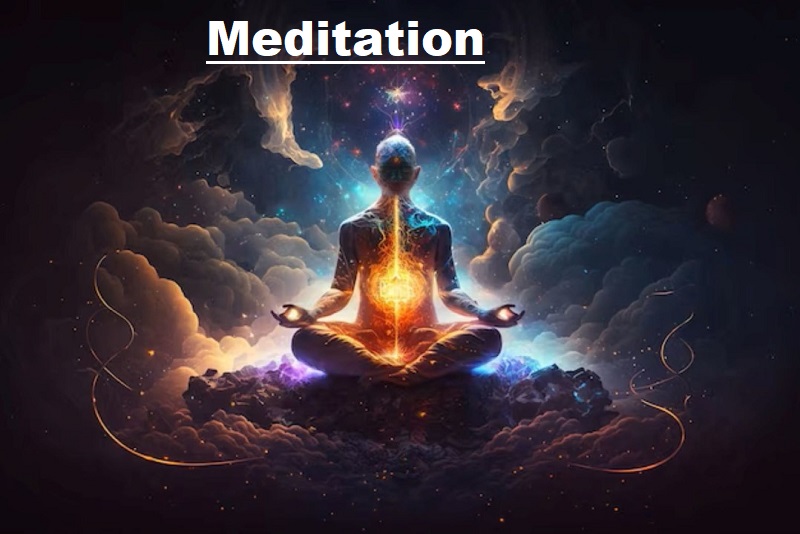Meditation is simpler than you think. With no strict rules or special equipment required, it’s a practice accessible to everyone. Whether you’re at work, home, or even on a bustling street, meditation allows you to find calm and clarity amidst the chaos of life.
What is Meditation?
Meditation is the practice of being present. At its core, it’s about awareness—conscious of your thoughts, emotions, and surroundings without judgment. For beginners, this can seem abstract, but it’s as simple as focusing on your breath or listening to sounds around you.

Common Misunderstandings About Meditation
Many people think meditation requires a tranquil mind or a serene environment. However, these are common myths:
- Myth: You need to stop thinking entirely.
- Truth: Meditation isn’t about eliminating thoughts; it’s about observing them.
- Myth: It must be done in silence.
- Truth: You can meditate anywhere, even in noisy places, by focusing on a specific sense, like sound.
Meditation is not about perfection. It’s a process of gently returning your attention to your focus whenever distractions arise.
Why Start Meditation?
For beginners, meditation offers numerous benefits, including:
- Reduced Stress: Regular practice lowers cortisol levels and promotes relaxation.
- Improved Focus: Enhances your ability to concentrate on tasks and be present.
- Emotional Balance: Helps manage anxiety, anger, and other emotions effectively.
How to Meditate: Step-by-Step for Beginners
Find a Comfortable Spot
Sit or stand in a position that feels natural. You don’t need a special posture; just be comfortable.
Choose Your Focus
-
- Focus on your breath.
- Listen to surrounding sounds.
- Pay attention to bodily sensations.
Acknowledge Distractions
When your mind wanders (and it will), notice the distraction without frustration and bring your focus back to your chosen point.
Start Small
Begin with 2–5 minutes daily and gradually increase as you feel more comfortable.
Simple Sound Meditation Technique
One of the easiest meditation techniques for beginners is sound meditation. Here’s how you can practice:
- Close your eyes (optional) and take a few deep breaths.
- Shift your attention to the sounds around you.
- Notice the layers of sounds—nearby conversations, distant traffic, or birds chirping.
- If your mind wanders, gently return to listening.
This method works anywhere, anytime, and helps you develop mindfulness naturally.
Top Myths and Facts About Meditation
| Myth | Fact |
|---|---|
| Meditation requires a quiet mind | It’s okay for your mind to wander. Meditation is about awareness, not silence. |
| You need hours to meditate effectively | Even a few minutes daily can provide significant benefits. |
| Only calm environments are suitable | Meditation can be practiced in any environment, quiet or noisy. |
Benefits of Meditation for Beginners
| Benefit | How It Helps |
|---|---|
| Reduces Stress | Lowers cortisol levels, helping you feel calmer. |
| Boosts Focus | Trains your mind to stay attentive and clear. |
| Improves Emotional Health | Encourages emotional balance and resilience. |
| Enhances Self-Awareness | Promotes mindfulness and a better understanding of yourself. |
Tips to Make Meditation a Habit
- Consistency is Key: Meditate at the same time every day, even if just for a few minutes.
- Use Reminders: Set alarms or associate meditation with an existing habit, like morning coffee.
- Keep It Simple: Start with accessible techniques like sound meditation or focusing on your breath.
Frequently Asked Questions About Meditation
1. Can I meditate if I feel distracted?
Absolutely. Distractions are normal. The practice of meditation involves recognizing these distractions and gently refocusing your attention.
2. Do I need special tools or equipment?
No tools are necessary. Meditation can be done anytime, anywhere, with just your mind and surroundings.
3. How long should beginners meditate?
Start with 2–5 minutes and gradually work up to 15–20 minutes as you grow comfortable.
Final Thoughts
Meditation for beginners is about embracing the process, not striving for perfection. By focusing on awareness, whether through breath, sound, or sensations, you can cultivate mindfulness and enjoy the many benefits meditation has to offer.
Start small, stay consistent, and remember: meditation is a journey, not a destination.



